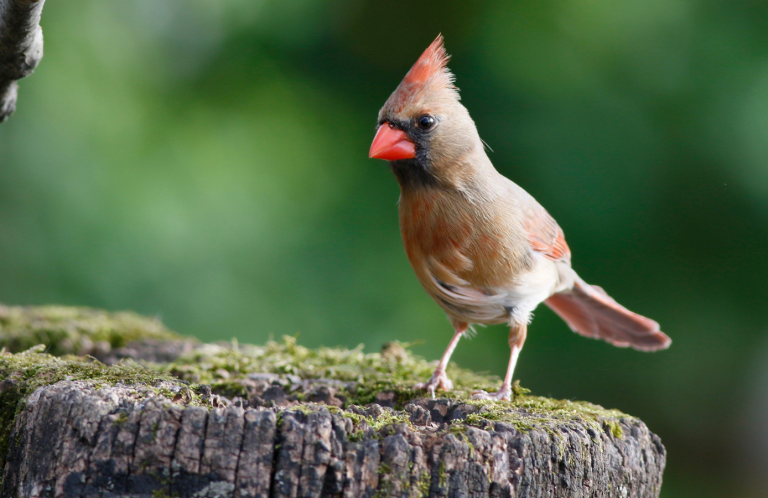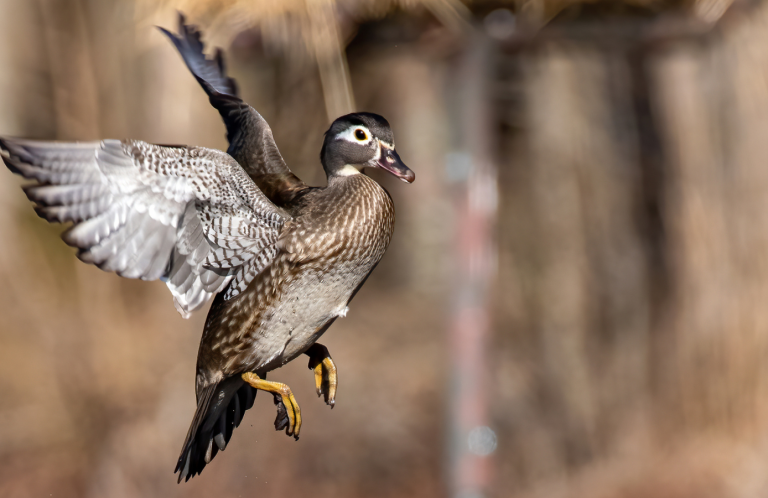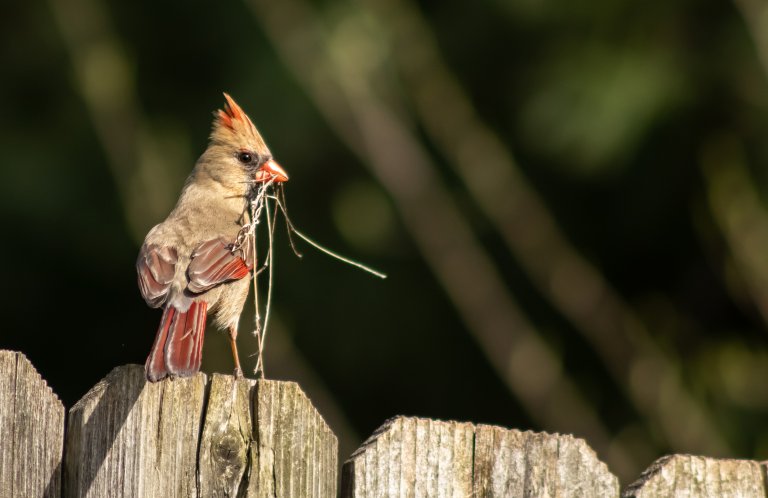Five Women Making Bird Conservation Happen at ABC
This is the second part of a series highlighting the women who work at American Bird Conservancy. Read parts one and three.
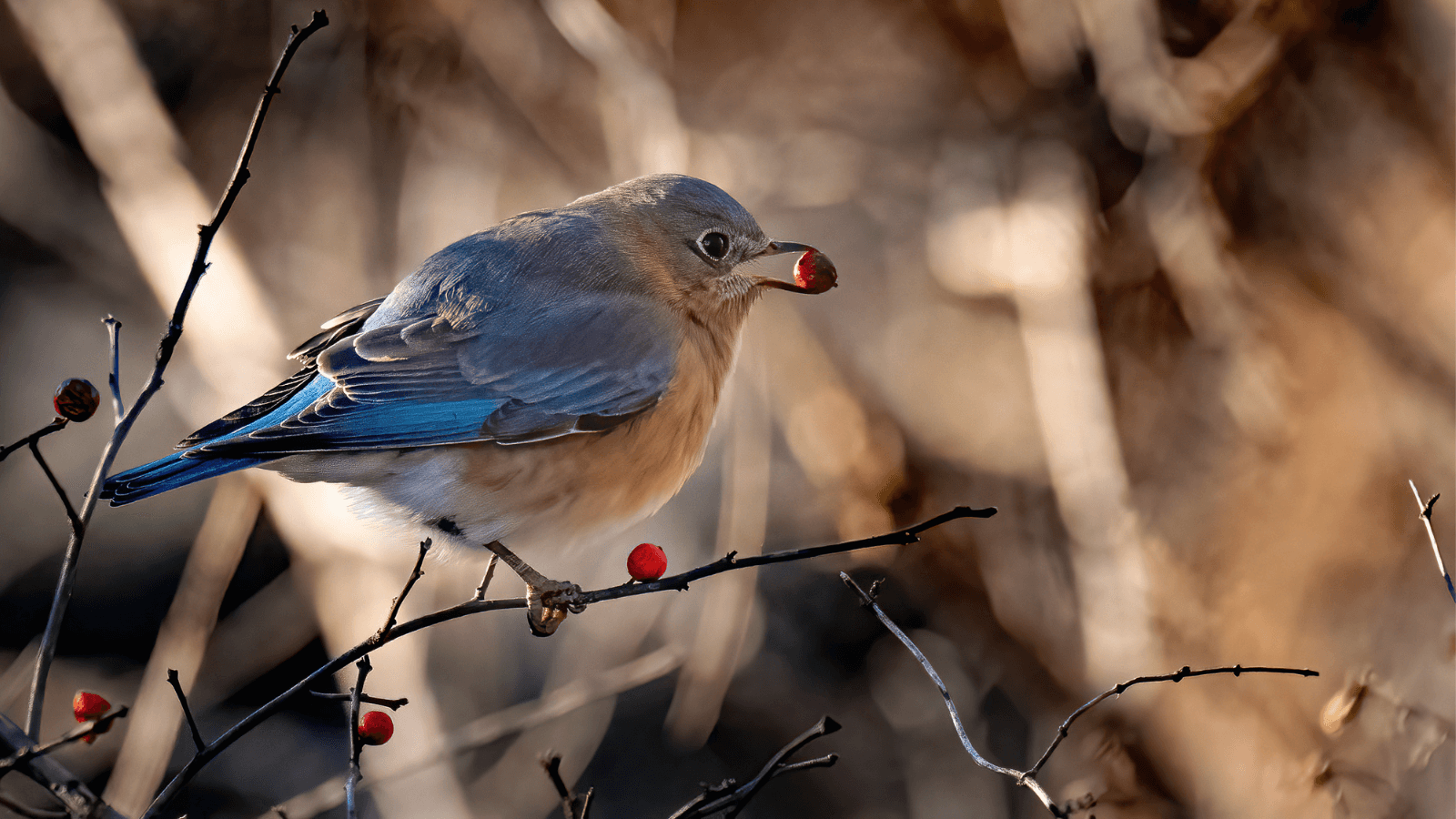
Conservation works best when we all get involved. At American Bird Conservancy (ABC), every person, whether they are doing fieldwork or paperwork, plays a part in our ongoing efforts to protect birds and their habitats in the Western Hemisphere. There are a lot of bird conservation heroes working behind the scenes at ABC — and women make up more than half of the ABC Flock! During Women's History Month, we are celebrating the dedication, talents, and expertise of some of the women who make ABC's work happen.
Liz Brewer, Outreach Specialist, Appalachian Mountains Joint Venture
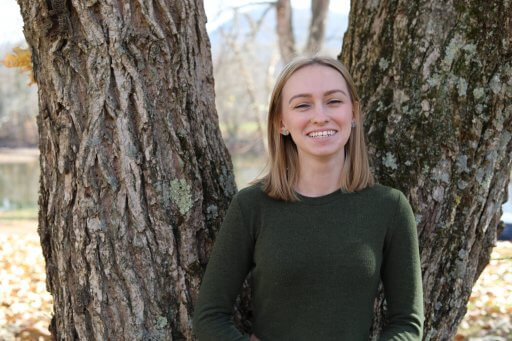
Connecting people to the work of the Appalachian Mountains Joint Venture (AMJV) is no small task. Beyond the more than 55 partners involved, the AMJV's work engages the public through outreach and education. As the AMJV's Outreach Specialist, Liz Brewer develops resources that partners can use in their work with stakeholders to improve bird conservation and forest management on private lands. She creates outreach strategies with supporting educational materials and plans workshops for land managers and landowners to learn more about bird-friendly forestry. All of this encourages landowners to consider their property as prime bird habitat and adopt practices for sustainable forest management. Liz's day-to-day duties vary as she works across different projects, but her favorite days are those when she is out in the woods with the AMJV team and landowners.
Liz's favorite bird, or the bird that got her started on her career path: “My favorite bird is the Eastern Towhee. It was the first bird song that I learned to identify!”
What makes Liz proud to be at ABC: “Knowing that my work has a direct impact that benefits not only birds and their habitats but the people of Appalachia as well.”
Her advice to budding bird conservationists: “Seek out mentorship from folks who are doing the kind of work you're interested in. The mentorship I've received from my colleagues at AMJV and ABC set me up for success early in my career.”
Karen “Mickey” Chapman, Rio Grande Joint Venture Coordinator
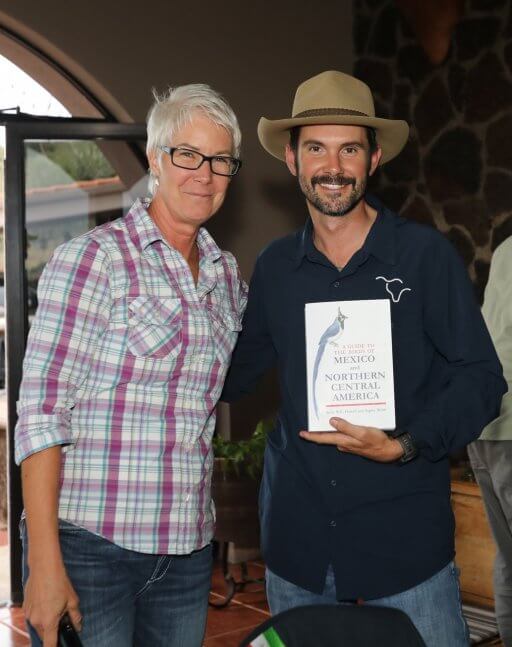
As the Coordinator for the Rio Grande Joint Venture (RGJV), Karen “Mickey” Chapman is often on the go. Coordinating the multi-agency, binational effort to bring partners together across borders to conserve birds, their habitats, and ecosystems requires a good deal of travel and time in the field. Here's a snapshot of just a few weeks of Karen's work: From mid-February to mid-March she conducted a week-long board meeting, attended and co-led a meeting with international water managers, spent eight days in a canoe on the Rio Grande, and went to Washington, D.C. for the Association of Joint Venture Management Boards fly-in. Karen says her schedule isn't always quite this jam-packed, but each week is different!
Karen's favorite bird, or the bird that got her started on her career path: “The kingfisher is my favorite bird. My first professional job was with National Audubon Society and I worked around many very good birders and learned to appreciate and watch birds from them.”
What makes Karen proud to be at ABC and working on the RGJV: “The RGJV is governed by the Management Board, which comprises many different public and private organizations in the U.S. and Mexico. I am proud to help facilitate and coordinate work that is critical for migratory bird survival and hope that our and partners' efforts result in migratory bird population stabilization and even growth.”
Her advice to budding bird conservationists: “Go after experiences and don't hesitate to put yourself out there. Learn to work as part of a team, learn from others even while you share your own opinion, understand that you don't need to be the smartest person in the room to speak up and ask questions, and believe in yourself!”
Madeline Duffy, Social Media Specialist
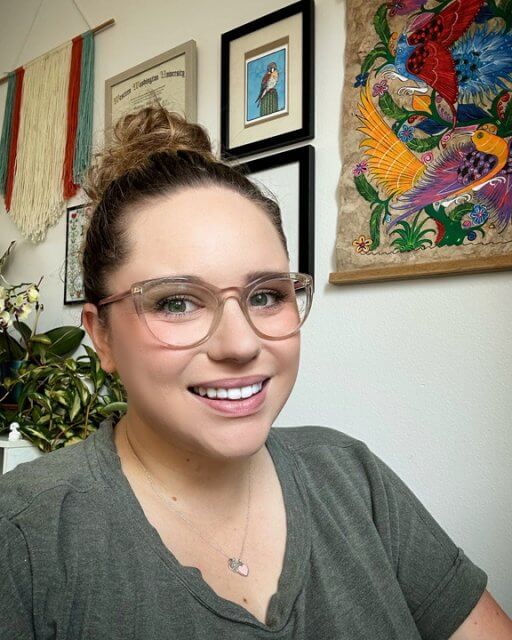
Madeline Duffy says she's an “armchair conservationist” because she works at a computer, often with her indoor cat, Pickles, at her side. But that doesn't mean she isn't playing a major role in moving bird conservation forward! As ABC's Social Media Specialist, Madeline engages an audience of nearly one million followers, sharing stories of our work to conserve vital habitat for some of the world's most imperiled birds. Her work encourages others to take action for birds, whether they sign a petition to strengthen pesticide regulations or learn how to make their windows bird-friendly. Part of what makes Madeline's social media strategy so strong is that she prioritizes engagement, answering questions, and responding to comments to bring people closer to ABC's work and mission.
Madeline's favorite bird, or the bird that got her started on her career path: “It's really impossible to choose! One of the things I love about my job is that I get to obsess about whichever bird comes across my desk! I love hearing from our program staff (who may be more focused on an individual species or a handful of species depending on their program) and catching their enthusiasm for their focus bird … and then getting excited about an entirely different bird a few hours later talking to staff working in a different part of the Western Hemisphere or on a different issue!”
What makes Madeline proud to be at ABC: “ABC honestly seems to care about doing things the right way. It's refreshing when there's often a lot of cutting corners in the nonprofit space. ABC is transparent and ethical and treats our staff well. It's impressive for such a large and multi-faceted organization. And we get results for birds!”
Her advice to budding bird conservationists: “Look up your dream job. Not your dream job for right now, but your ultimate dream job where you'd like to see yourself in, say, 10 years. Find someone hiring for that job and check out the job description. Look at the qualifications and experience sections and note what skills and experience you already have and what you don't already have (there should be a lot! This is a future job, not a ‘now' one!). Then, actively seek opportunities to gain that experience. That way, in 10 years (or maybe even five!), when you apply for a similar position, you'll be able to check all those boxes.”
Amanda Duren, Director of Conservation Partnerships, Appalachian Mountains Joint Venture
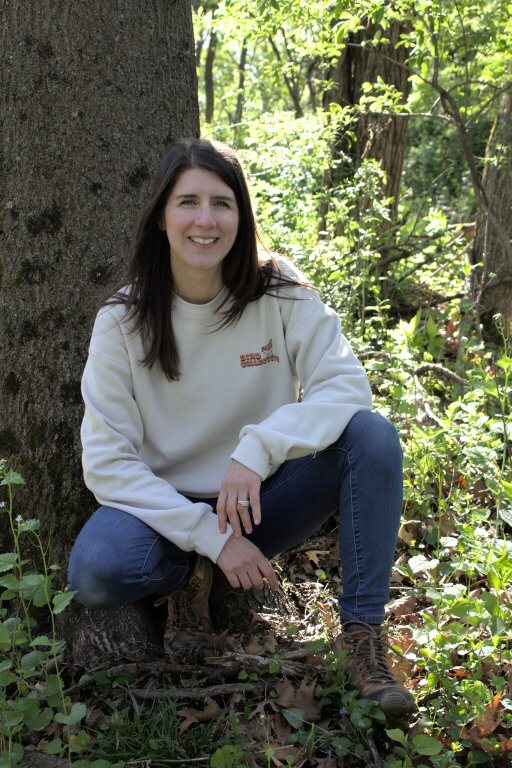
As Director of Conservation Partnerships for the Appalachian Mountains Joint Venture, Amanda Duren leads the AMJV's efforts to identify the most critical habitats for bird conservation across the region, which covers portions of 12 states and includes 103 million acres. More than 55 state and federal agencies, nonprofits, and universities work together through the AMJV, and Amanda works across them to leverage resources and foster collaboration to get results for birds. Sometimes that means a lot of Zoom meetings! But every day, she is keeping her finger on the pulse of the AMJV partners' work to make our shared efforts for birds more effective.
Amanda's favorite bird, or the bird that got her started on her career path: “I had an internship with the U.S. Fish and Wildlife Service. I had just finished my degree in Environmental Resource Management, which is a really broad program, and I hadn't at that point thought about bird conservation as a career path. But on my first day, I helped put bands on Peregrine Falcon chicks. The process of going up to the nesting platform and being able to hold those chicks was a really powerful experience for me, and it was the first time, through the rest of that internship working around professionals who focused on bird conservation, that I started to see that as an option for me.”
What makes Amanda proud to be at ABC: “I'm most proud of the work that I've done with private forest landowners across the region, being able to meet with them and hear what they love about owning their property and being out in the woods. I help them reach the goals that they have for their properties while also meeting our own goals for the birds and the habitats that those forests are providing for, in 2024 and beyond. We are very focused on expanding our work to include more engagement with the communities that have been historically excluded from conservation work with more outreach and engagement with the people who live in the places where we are conserving birds. We are gaining an understanding of how they interact with those areas and making sure that they are brought along with and lifted up by the conservation work that we're trying to do in their communities.”
Her advice to budding bird conservationists: “Don't be intimidated if it's not something that you grew up doing. Even if you're not a person whose family goes camping every summer or goes out fishing every weekend, the outdoors could be something that you have an interest in or be really passionate about and find later. As you are exploring what career options are out there, don't necessarily limit yourself to just things that you're comfortable with or just things that you have seen other people around you going into.”
Melissa Ludwig, Grants Officer
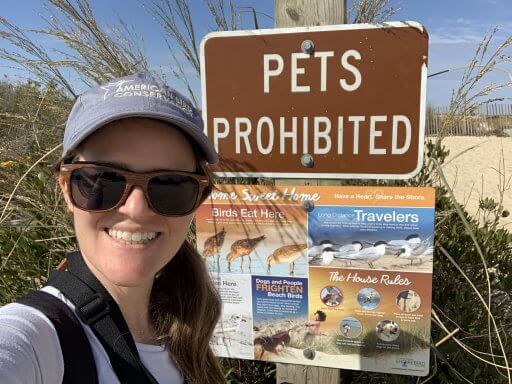
Successful conservation doesn't just depend on boots-on-the-ground work — it also takes resources! As a Grants Officer for ABC, Melissa Ludwig raises funds for federal, state, and National Fish and Wildlife Foundation grants. Her work helps to fund a variety of programs across the U.S. that are getting results for birds. Melissa's fundraising skills have supported everything from Migratory Bird Joint Venture activities in the Southeast and Southwest to beach cleanups and stewardship on the Gulf Coast, to the expansion of Motus towers to build capacity for studying at-risk species like the Rusty Blackbird.
Melissa's favorite bird, or the bird that got her started on her career path: “Whichever bird I am currently observing, or the one I most recently photographed. Impossible to pick a favorite!”
What makes Melissa proud to be at ABC: “There's a lot! One of the areas that I work on is the Gulf Coast in Texas, and we have a program there, Stopping Plastics and Litter Along Shorelines (SPLASh). We do beach cleanups, outreach, and educational events. That's really fun to fundraise for and to talk about. Then there's our Joint Ventures, forestry work in the Southeast, riparian and grassland restoration in the Southwest, our Crumb Clean initiative in the Northwest… I could go on for days.”
Her advice to budding bird conservationists: “You don't have to have a degree in biology and be a scientist to do work related to conservation. I studied music in school. It took me a little while to get from there to here. But you really can learn an aspect of the business of nonprofits, like finance or fundraising, through experience. If you feel connected to the mission, you can make a difference in a role that isn't necessarily working on the ground in the woods or on the beach every day. So if you're in a different field and want to do this type of work, it is possible — don't give up!”
There is much more to learn about (and from) the women at American Bird Conservancy! This is the second part of a series highlighting the women who work at American Bird Conservancy. Read parts one and three.





































